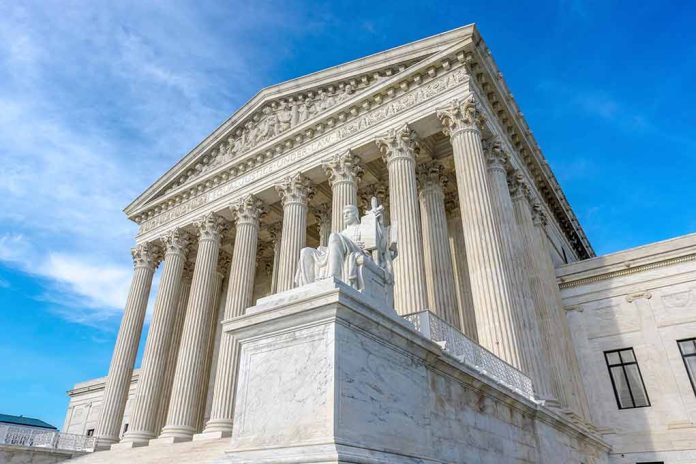
A federal appeals court in New Orleans has temporarily halted Louisiana’s controversial Ten Commandments program in public schools, igniting a fierce debate over religious expression in education.
At a Glance
- Federal judge blocks Louisiana law requiring Ten Commandments display in public schools
- Law ruled unconstitutional, violating First Amendment’s establishment clause
- Louisiana Attorney General Liz Murrill plans to appeal the decision
- Debate centers on balancing historical values and constitutional rights
Court Ruling Halts Ten Commandments Display
In a significant legal development, U.S. District Judge John W. deGravelles has temporarily blocked a Louisiana law that would have required public schools to display the Ten Commandments in classrooms. The judge ruled that the law violates the First Amendment’s free exercise and establishment clauses, declaring it “unconstitutional on its face and in every application.”
The decision comes as a result of a lawsuit filed by parents of public school students, represented by the American Civil Liberties Union (ACLU) and other organizations. The plaintiffs, who come from various religious backgrounds, argue that the law infringes on their First Amendment rights and violates the separation of church and state.
Louisiana’s plan to make all of the state’s public school classrooms post the Ten Commandments remains blocked under an order Wednesday by a federal appeals court in New Orleans. https://t.co/TD1X9ySnzE
— PBS News (@NewsHour) November 20, 2024
State’s Response and Legal Battle
Louisiana Attorney General Liz Murrill has announced plans to appeal the decision, stating that the ruling only applies to the five school districts named in the lawsuit. The law, which was signed by Governor Jeff Landry, was set to take effect on January 1, 2025, requiring the Ten Commandments to be displayed in all public K-12 classrooms and state-funded universities.
Proponents of the law argue that it reinstates important historical and cultural values, while opponents question its constitutionality and potential for discriminating against non-Christian students. The case has become a crucial test for the intersection of faith and public service in education.
Diverse Perspectives on the Issue
The debate surrounding the Ten Commandments display has sparked passionate responses from various stakeholders. Christopher Dier, a history teacher who filed a separate lawsuit against the law, expressed concerns about religious coercion in the classroom.
On the other hand, supporters of the law, like Nicole Hunt from Focus on the Family, view the Ten Commandments as moral guidelines that have a place in public education. The contrasting viewpoints highlight the complexity of balancing religious traditions with constitutional rights in the public sphere.
Implications and Future Outlook
As the legal battle continues, the case may potentially reach the U.S. Supreme Court, which has previously ruled against similar laws in 1980. The outcome of this case could have far-reaching implications for religious expression in public schools across the nation.
As the debate continues, it remains to be seen how Louisiana and other states will navigate the delicate balance between preserving religious heritage and upholding constitutional principles in public education. The resolution of this case will likely shape future discussions on the role of religious symbols in American classrooms.
Sources:
Judge rules Louisiana law ordering schools to display Ten Commandments violates First Amendment
Federal judge blocks Louisiana’s Ten Commandments law in public schools
Court Ruling Stops Louisiana From Requiring Ten Commandments in Classrooms for Now














